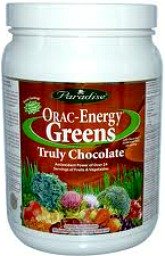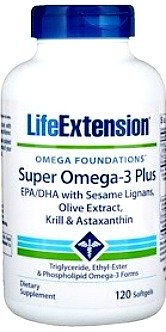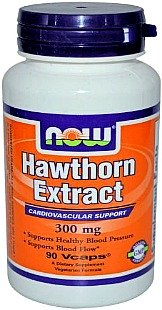Good vs Bad Cholesterol: How to achieve optimal levels
When it comes to good vs bad cholesterol, there are many misconceptions. Cholesterol is a chemical compound, fat-like substance, which is essential for all mammals, including humans.
It is used to produce hormones, bile acids, vitamin D and cell membranes. Our body produces 80 % of cholesterol, mainly liver, while the rest comes from diet. Main dietary sources of cholesterol are meat, fish, poultry, egg yolks and dairy products.
There are several types of cholesterol: HDL, LDL and VLDL or very low density lipoprotein. We are going to talk about HDL and LDL cholesterol since they are most significant, besides total cholesterol and triglycerides.
Cholesterol has immense effect on the heart and blood vessels. Optimal HDL to LDL ratio, significantly decreases the chances of heart disease and heart attack. To know how high or how low is your risk of heart disease, you have to know where are your cholesterol and triglycerides values at, as well as how to prepare for the test.
GOOD VS BAD CHOLESTEROL: "GOOD" - HDL CHOLESTEROL
HDL or high-density lipoprotein is known as good cholesterol since it works as cholesterol scavenger. It removes cholesterol from the arteries and transports it to the liver, where it is broken down and recycled or excreted from the body.
It also seems that HDL cholesterol prevents or at least slows down build-up of plaque, inside the arteries. Scientist belive that by doing so, HDL protects us from atherosclerosis thereby reducing the risk of heart disease as well as heart attack and stroke.
Hormones and hormone based drugs such as steroids also have an effect on cholesterol levels. Estrogen may increase HDL because of which premenopausal women generally have higher HDL cholesterol than men do, according to scientists.
GOOD VS BAD CHOLESTEROL: "BAD" - LDL CHOLESTEROL
LDL or low-density lipoprotein is known as bad cholesterol but in some way, it is misunderstood. High levels of LDL cholesterol are obviously, bad since LDL can cause build of plaque which can lead to blood clots, atherosclerosis and heart attack.
On the other hand, if our own body produces small amounts of LDL cholesterol, then it ain't that bad, right. It is like saturated fat. In right amounts, it is actually good for us. We just need to find the right balance. Good example are side effects associated with the use of statins and too low cholesterol. Statins are also known as cholesterol lowering drugs.
Interestingly, saturated fat raises LDL, so right amount of saturated fat equals right amounts of LDL cholesterol in the blood, as it seems. The point is LDL cholesterol ain't that bad as it seems to be, you just need to watch out for your intake of animal products as they are the richest source of saturated fats which raises LDL cholesterol.
GOOD VS BAD CHOLESTEROL: TOTAL CHOLESTEROL AND HDL - LDL RATIO
Total cholesterol is measurement of your HDL and LDL cholesterol as well as other lipids, circulating in the blood. It is a good indicator of possible heart disease, stroke and heart attack.
Even more important than total cholesterol values, is HDL to LDL ratio. Optimal HDL to LDL ratio should be between 0,3 and 0,6 while ideal number is around 0,45. It is calculated by dividing the HDL with LDL cholesterol.
If the number is higher than 0,6 or lower than 0,3 it is very likely that LDL is too high, HDL too low or both. On the other hand, LDL cholesterol can also be too low which has happened to me but it is less common.
For example, Phytosterols rich foods can have immense positive impact on your cholesterol levels.
GOOD VS BAD CHOLESTEROL: TRIGLYCERIDES
Triglycerides are basically fats and the more fatty, starchy and sugary foods you eat, the more you have it circulating in the blood. Body uses triglycerides as a source of energy, for nutrient storage and maintenance of your growth, immune function and cell reproduction.
Liver can produce triglycerides as needed, same as cholesterol. Any more of that, is stored as fat. This is usually the consequence that comes from overindulging in food and alcohol.
It is very simple. If you consume 3000 calories per day and on that given day your body requires only 2000 calories, then the rest of 1000 calories is stored as fat, mostly in form of triglycerides. Triglycerides levels are also very easy to lower down since they are used as a source of energy.
To achieve this, eat healthy, exercise regulary and burn more calories than you consume. High triglycerides levels have been linked to atherosclerosis, heart disease, stroke and pancreatitis.
NOTE: High triglycerides levels usually go "hand in hand" with high LDL cholesterol.
CONCLUSION
When it comes to good vs bad cholesterol, in order to achive optimal values as well as HDL to LDL ratio, diet is the most important factor. Adding exercise to your regiment will also speed up the process.
If you need to reduce high cholesterol and triglycerides, you can consider certan herbs, supplements, and fiber rich foods to help you lower cholesterol levels faster and thereby move away from the "danger zone".
On the other hand, if your cholesterol and triglycerides fall more or less inside normal values, then just eating good foods and exercising is more than enough for you.
You can check here, MY CHOLESTEROL AND TRIGLYCERIDES LAB RESULTS.
- Heart Healthy Diet: Simple Tips and Guidelines
- Learn everything you need to know about heart healthy diet and find the right one for you. Implement few simple tips for immediate benefits.
- Heart Healthy Foods: How to Get the Most from Them
- Heart healthy foods can improve cardiovascular system function. Foods good for the heart are bursting with vitamins, minerals and rejuvenating phytochemicals.
- Herbs for the Heart and Cardiovascular System
- You have heard for hawthorn and garlic but there are few other herbs for the heart which can help in treating heart disease, naturally.
- The Best Heart Health Supplements
- Besides fish oil, there are several heart health supplements which can be useful. This includes Coenzyme Q10, Salicin, vitamin D3 and few others.
- Heart Healthy Spices
- Although there are many heart healthy spices out there, each of them can help prevent and treat heart disease in its own way, thanks to different types of flavonoids in these heart spices.
- Stress and Heart Disease: How are They Connected
- Stress and heart disease are closely related. In order to decrease the risk of heart problems, we have to learn how to handle the stress and treat its consequences, if we are unable to avoid it.
- Cardio Exercises for the Heart and Cardiovascular System
- Cardio exercises are vital part of natural heart disease treatment. However, which kind of heart exercise you should preform, varies from person to person.
- Good vs Bad Cholesterol: How to Improve Cholesterol Values
- Good vs bad cholesterol conflict is somewhat misunderstood. There is no good or bad cholesterol but only high or unbalanced cholesterol.
- Good Fats vs Bad Fats: Nutritional Facts and Guidelines
- What is the real truth when it comes to good fats vs bad fats? How much dietary fats should you consume daily and what are the best food sources of healthy fats?
- High Blood Pressure Remedies
- High blood pressure remedies range from tips and lifestyle modification to herbs and supplements. However, the method that works for someone else, may not work for you.
- Normal Heart Rate: How is Regulated and Influential Factors
- Normal heart rate varies from person to person. Although, age affects resting heart rate, there are many other factors that can raise or decrease heart rate.
- How to Lose Fat: Overlooked Tips for Weight Loss
- How to lose fat is surely one of the most intriguing questions for so many people. However, the answer is very simple. Eat healthy foods, perform fat burning exercises and take care of your hormones.
- Hormones and Heart Disease Connection
- Don't neglect hormones and heart disease connection. If you want to treat or prevent heart disease you have to balance your hormones.
- Heart Disease and Immune System Connection
- Heart disease and immune system connection is often overlooked, while trying to improve cardiovascular system function. However, there are several things you can do to change this.
- Dental Health Heart Disease Connection: Facts and Tips
- Dental health heart disease connection is one of three overlooked factors, along with hormones and immune system. However, with smart and effective approach we can change this.
- Causes of Heart Disease
- There are many causes of heart disease and factors that can increase or decrease your risk for developing heart related problems. Check how to turn the tide in your favour.
- Symptoms of Heart Disease
- There are few main symptoms of heart disease. Find out which are they, how to recognize them as well as my personal experience with some of them.
- Diagnosis of Heart Disease
- Accurate diagnosis of heart disease is the first step toward recovery. You can't start with treatment before you know what kind of disease you have, obviously.
- Treatment for Heart Disease: Medications and Surgeries
- Standard treatment for heart disease consists of surgeries, medications and devices. Which one is right for you, depends on your condition.
- Heart Disease Blog
- This is a blog about natural remedies, personal stories, helpful herbs and supplements, workout program as well as other tips and facts which may help people faced with heart disease.
- Contact Me
- Ask questions and leave comments about this site here.
- About the Author of Heart Health Guide
- About the author of Heart-health-guide.com website.
- Heart Health Guide Sitemap
- This is sitemap of Heart Health Guide.com. If you want to get better overview of informations on this website, you can get it here.
Copyright © - Heart Health Guide - All Rights Reserved.



